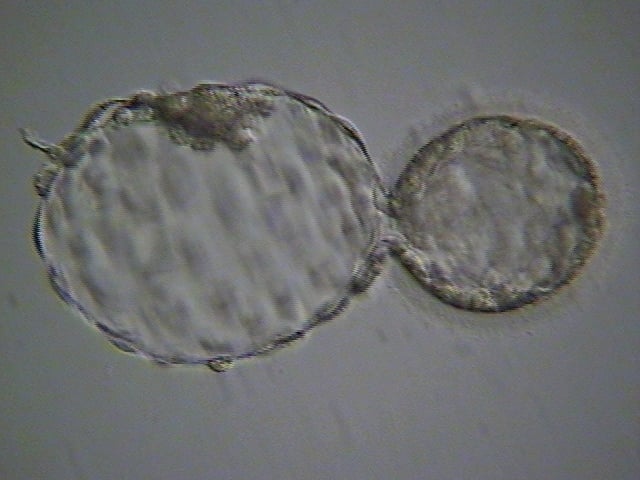Advances in Day 7 Embryo Biopsy

During IVF, an embryo’s developmental stage, morphologic grade, and chromosomal status are paramount factors supporting which embryo to transfer and the likelihood of implantation. Modern IVF practices extend embryo culture up to blastocyst stage (Day 5, 6 or 7). By utilizing this methodology, the embryo is able to undergo a trophectoderm biopsy wherein 5-7 cells are isolated and secured for further genetic screening. The biopsy does not affect the future quality of the embryo.
The process of interpreting the genetic composition of an embryo is called preimplantation genetic testing for aneuploidy (PGT-A). Aneuploidy is defined as the incorrect number of chromosomes and Euploidy is defined as the correct number of chromosomes. Historically, a trophectoderm biopsy for PGT-A is performed around day 5 or 6 of development, when an embryo reaches expansion and develops into a blastocyst. However, some embryos may require more time in culture to achieve full expansion or growth after fertilization. These slow developing embryos develop on day 7 and have been thought to have lower pregnancy rates compared to patients who select day 5 or 6 embryos at time of transfer. Published reports have questioned and potentially biased many embryology laboratories and ART practices about the clinical value of Day 7 embryos. But the generalizability of these studies are now being questioned. The study designs often had relatively small sample sizes, variability in laboratory procedures, and were often unable to take advantage of modern screening techniques. Due to the recent advancements in preimplantation genetic technology and improved culture conditions, modern embryology laboratories are moving towards routinely extending embryo culture past day 6 of development.
At RMA of New York, we believe that slow developing embryos represent a chance for some patients to achieve pregnancy. Our practice has been performing extended culture to day 7 for a number of years. In one of our latest research publications, we evaluated the reproductive potential of the largest cohort of day 7 embryos biopsied for preimplantation genetic testing for aneuploidy. Our study demonstrated that day 7 euploid embryos (embryos with the correct number of chromosomes) compared to day 5 or day 6 embryos showed an increased prevalence of being genetically abnormal or aneuploid, but a very promising percentage of these embryos were found to be euploid or normal. Additionally, day 7 euploid embryos that were selected for transfer were shown to achieve acceptable pregnancy rates and live birth outcomes. This study supports an additional treatment strategy for patients who otherwise would not have the chance to continue care or achieve a successful pregnancy.
Dr. Hernandez-Nieto recently participated on a webinar organized by the International IVF initiative (I3) speaking about this slow developing embryos and their clinical utility. Watch the webinar.
